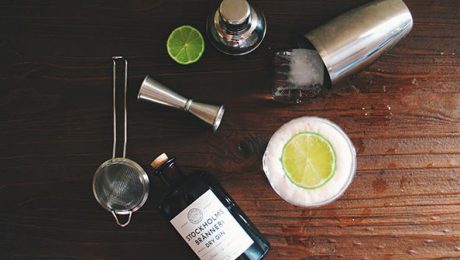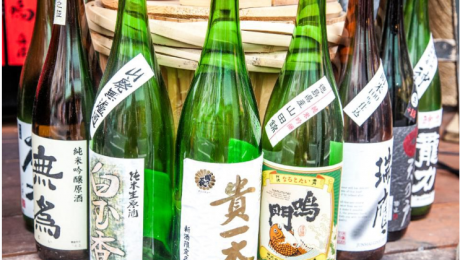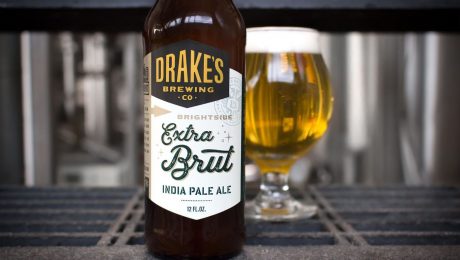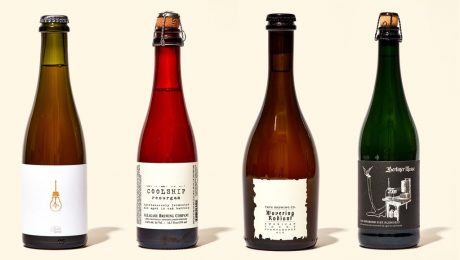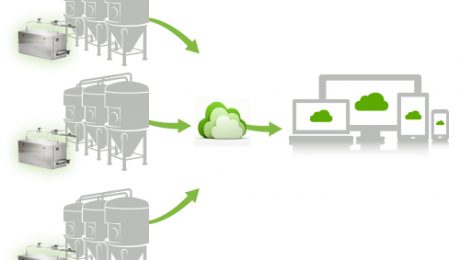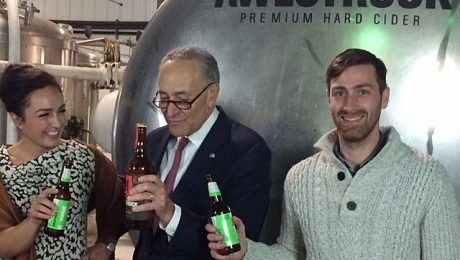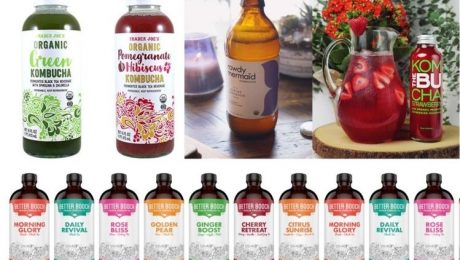Fermented Food & Drink Top 2019 Food Trend Lists
Fermented food and drink is on top of food trend lists for 2019. Gourmet Insider Magazine and Food & Drink Resources ranked fermented foods high, citing a consumer focus on gut health and a desire for more unique flavors fermentation offers. Other fermented trends include CBD-infused cocktails and coffee drinks, and “loaded” cocktails that taste unique and are decorated with unique garnishes.
Read more (Gourmet Insider)
- Published in Business
Sake Sommeliers Growing Mainstay in Restaurants
As sake becomes mainstream, more restaurants are hiring sake sommeliers. These sommeliers – who help pair the best sake with a meal – are educating diners about the fermented rice wine beverage. There’s a misconception that sake can only be served with Japanese food, but the wine and sake director of Zuma operations in the U.S. says: “Sake is becoming more than just a beverage for Japanese cuisine and we, as sake sommeliers, are looking to have sake displayed in all aspects of restaurant culture.”
Read more (Forbes)
- Published in Business
Brut IPAs Major Brewing Buzz – Will the Movement Stick?
Are brut IPAs a trend that will fade or a movement that will stick? Started in San Francisco, brut IPAs are a beer style that is dry, crisp and heavily carbonated like champagne. The unique flavor is thanks to the fermentation process, where an amyloglucosidase enzyme is used to “ferment sugars that wouldn’t break down with yeast alone, which leaves them totally dry,” according to the LA Times. Brewers and hopheads are excited about brut IPAs, leading to many breweries offering brut IPAs on their menu.
Read more (LA Times)
- Published in Business
Should Big Beer Brands Be Granted Barley Patents?
Should big beer brands be allowed to patent barley? In Europe, a major win for a group of small brewers who were suing Heineken and Carlsberg. The European Patent Office allowed the brewing giants to patent several kinds of barley. Heineken and Carlsberg say they invented the barley strains. Critics of the patent, though, say the barley naturally occurs and it’s based on fermenting science that brewers have used for thousands of years. In the first of three hearings, the patent office says the big beer brands could only have patents to barley with a specific genetic mutation.
Read more (The Times)
- Published in Business
Mead – World’s Oldest Alcoholic Drink – Trending in Breweries Across U.S.
“The world’s oldest alcoholic beverage has suddenly become new again,” the New York Times writes of mead. The fermented honey drink (also known as honey wine) is featured in a new book “Mead: The Libations, Legends and Lore of History’s Oldest Drink.” According to the American Mead Makers Association, mead is more popular than craft beer, with a new meadery opening in the U.S. every seven days.
Read more (The New York Times)
- Published in Business
More Brewers Using Spontaneous Fermentation
Spontaneous fermentation is seeing a big surge among breweries. It’s a method beer, cider, wine and liquor makers should consider because spontaneous fermentation is a sign that the brewer is confident in their technique, willing to trust the uncontrolled aspects of the fermentation process and having fun, says Bon Appetit magazine. Also known as hands-off, natural or traditional fermentation, it’s the oldest form of fermentation, used before fermentation could be controlled and regulated.
Read more (Bon Appetit)
BrewMonitor Integrats IoT with Craft Beer Production
New product BrewMonitor System integrates the Internet of Things (IoT) with craft beer production. BeerMonitor is a high-tech device that sits in fermentation tanks and takes real-time measurements. Brewers can then monitor tank conditions from their smart device, without ever opening the tank. Created by Precision Fermentation, a biochemistry technology provider, BeerMonitor will launch next month with the tagline “If your tanks could talk.”
Read more (PR Newswire)
- Published in Business
New York Senator Pushes for New Regulations on Hard Ciders
A New York senator is pushing change for federal alcohol regulators to ease up on hard ciders. Cider owners cannot legally sell hard cider with an alcoholic content below 7% in cans, forcing them to use wine containers instead. This hurts most quality, fermented apple ciders, the senator argues, because they must water down their product to sell it in cans.
Read more (WXXI) Photo by CNY News
- Published in Business
Lawmakers Push for KOMBUCHA Act, Aiming to Increase ABV Level for Kombucha
Lawmakers from Oregon and Colorado are advocating for a new bill that would modernize outdated federal alcohol taxes. Known as the KOMBUCHA Act (Keeping our Manufacturers from Being Unfairly Taxed while Championing Health Act), the bill aims to increase the ABV for kombucha from 0.5 percent to 1.25 percent so kombucha can be sold as a non-alcoholic beverage. Currently, many kombucha brewers are forced to pay an alcohol tax and abide by regulations intended for the alcohol industry. Kombucha Brewers International is lobbying for the bipartisan bill. You can signup to track the bill here, at congress.gov.
Read more (Kombucha Brewers International) & Read more (Sen. Ron Wyden, D-OR)
- Published in Business
Kombucha: Alcohol or Tea? Lawsuit Pushes for ABV Transparency
Should kombucha be sold next to alcohol or soft drinks? Numerous big-name kombucha brands are under fire for alleged false advertising. Tortilla Factory (the parent company behind Kombucha Dog) is suing Trader Joe’s, Better Booch, Makana Beverages and Rowdy Mermaid Kombucha for supposedly violating the law by exceeding the 0.5% abv threshold. Tortilla Factory used a third-party lab to test the alcohol levels of the brands, and found their abv at 0.6-2.7%. Kombucha Dog is one of few kombucha brands that is sold as alcohol (it contains 1.4% abv), and they claim in the lawsuit that the mislabeling of the accused brands is unfair competition since most consumers will purchase a drink with lower abv. This is the second time Kombucha Dog has brought a lawsuit against kombucha brands. Earlier this year, they sued Health Ade and Humm Kombucha for understating their sugar content, allegedly putting double the amount of sugar in the drinks as the label states.
Read more (Food Navigator)
- Published in Business

